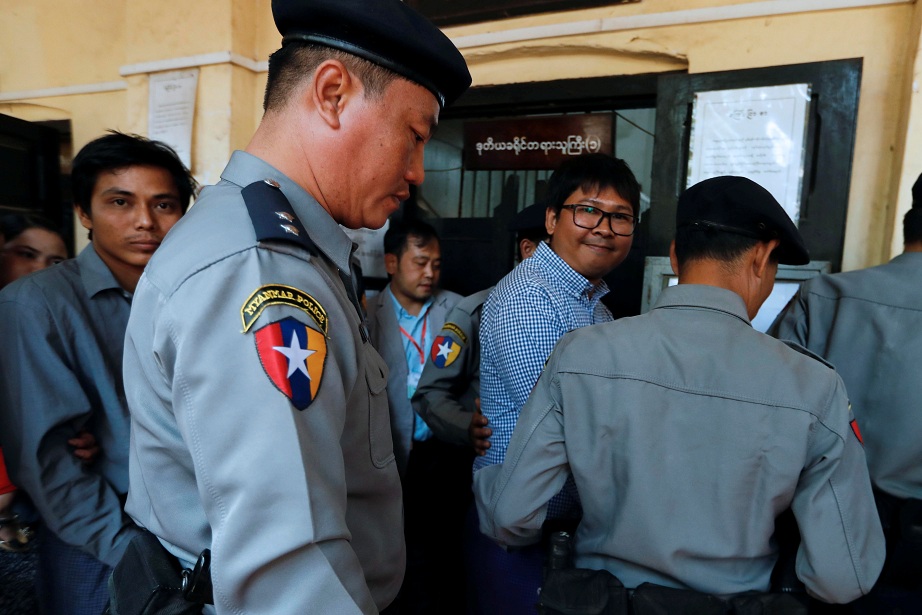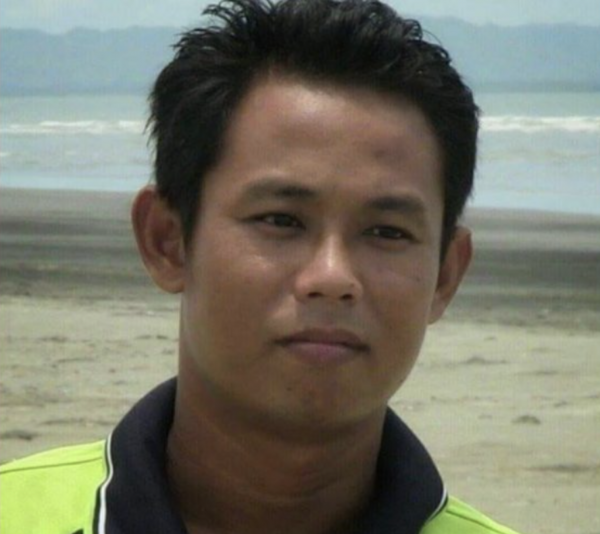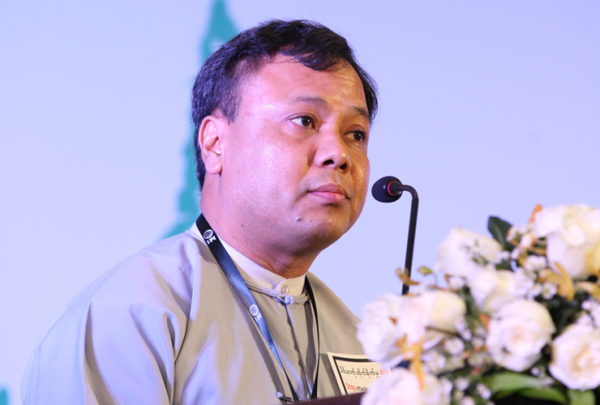The International Press Institute (IPI) today reiterated its call on Myanmar to free two Reuters journalists who have been now held for more than 100 days on spurious accusations of violating the country’s official secrets law.
Wa Lone, 31, and Kyaw Soe Oo, 28, were arrested in Yangon on December 13, 2017, by local security forces. The pair had been investigating the death of 10 Muslims in a village in Rakhine State, western Myanmar. Rakhine State is home to an ongoing conflict that has forced more than 700,000 ethnic Muslim Rohingya to flee to Bangladesh. The conflict is a sensitive issue in Myanmar, and reporting on it has been proven to be difficult for both local as well as international reporters.
On the day of their arrest, Wa Lone and Kyaw Soe were invited to dinner by local police forces in the city of Yangon. After arriving, they were unexpectedly taken into custody without being able to notify their families.
The Myanmar government has accused the two journalists of “possessing illegally acquired secret information related to Rakhine State and security”, though witnesses have testified the documents in question were already in the public domain. Wa Lone and Soe are being prosecuted under Myanmar’s Official Secrets Act, which dates from British colonial rule and appears to have been rarely invoked in the country’s recent history with only a handful of documented applications. They face up to 14 years in prison if convicted.
IPI Deputy Director Scott Griffen called the charges “highly suspect”.
“Myanmar’s claim that Wa Lone and Kyaw Soe illegally possessed secret information appears to be nothing more than an excuse to punish two reporters for covering a topic that makes the authorities uncomfortable”, he said. “The jailing of two journalists for more than 100 days is a sign that, despite previous commitments, Myanmar is moving backward when it comes to press freedom. The court should dismiss this case as manifestly unfounded and should free both journalists without delay.”
At IPI’s 2015 World Congress in Yangon, then Information Minister U Ye Htut called the country’s reform process “irreversible”, prompting hope of greater respect for press freedom in the country after decades of military rule.
The trial of the two journalists continued today. Lawyers asked the court to dismiss the case due to the lack of evidence to support the charges.
Our Reuters colleagues Wa Lone (big smile, thumbs up, handcuffs) and Kyaw Soe Oo appeared in court today. They face a 14-year sentence for reporting an atrocity by the Myanmar military. #FreeWaLoneKyawSoeOo pic.twitter.com/8Vz3fX3z3Z
— Andrew RC Marshall (@Journotopia) March 28, 2018
The arrest of Wa Lone and Kyaw Soe has done much to dash that hope and has prompted a strong reaction from the international community. U.N. officials, including Secretary-General António Guterres, as well as numerous foreign leaders have expressed concern.
The case has added to growing international scepticism over the priorities of Myanmar’s de facto leader, Nobel Peace Prize laureate Aung San Suu Kyi, who is already the target of criticism for failure to protect minorities and prevent alleged abuses by the military in Rakhine State.



